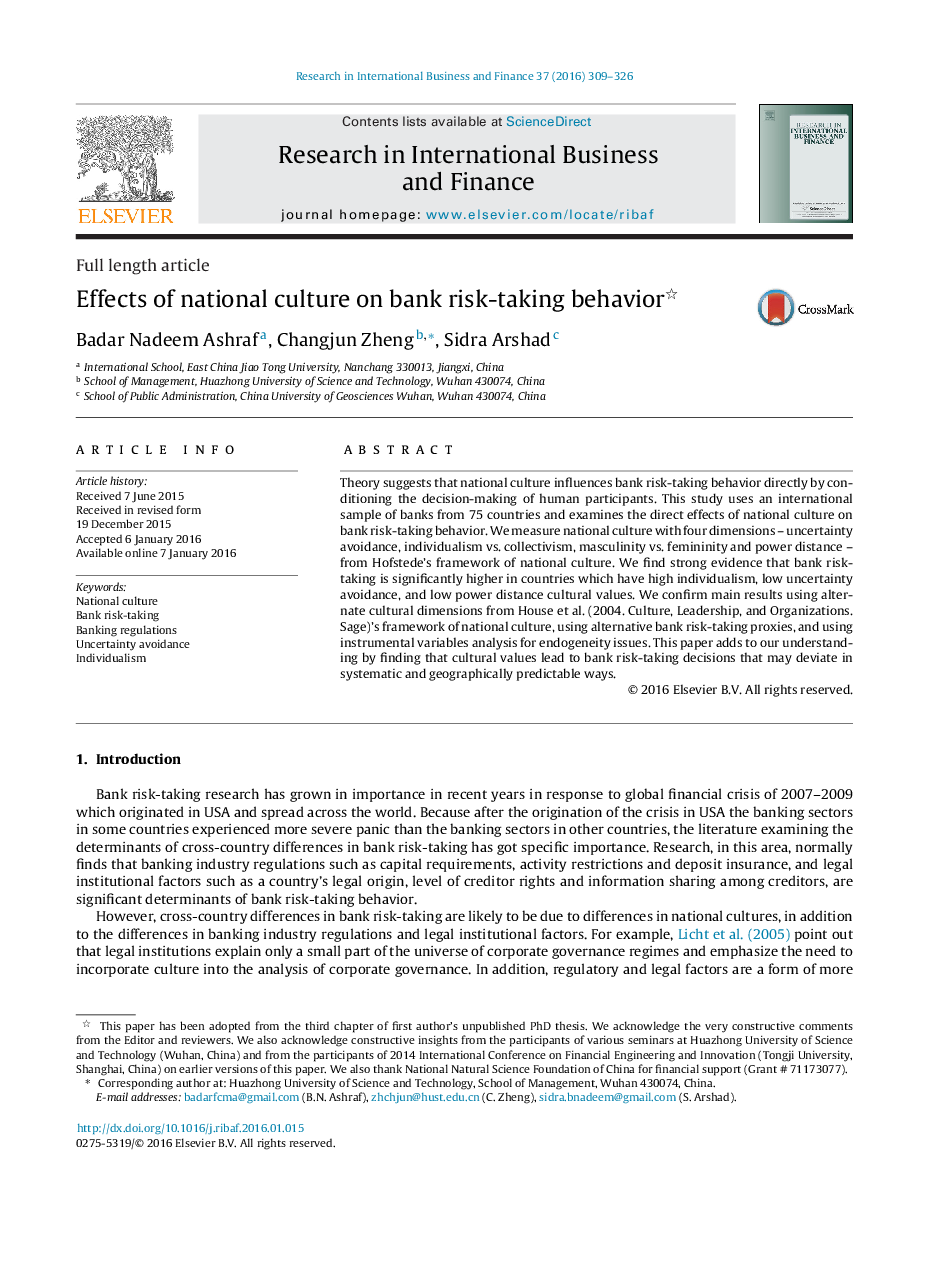| Article ID | Journal | Published Year | Pages | File Type |
|---|---|---|---|---|
| 1003067 | Research in International Business and Finance | 2016 | 18 Pages |
•This study examines direct effects of national culture on bank risk-taking behavior.•Bank risk-taking is higher in countries which have high individualism cultural values.•Bank risk-taking is higher in countries which have low uncertainty avoidance cultural values.•Bank risk-taking is higher in countries which have low power distance cultural values.
Theory suggests that national culture influences bank risk-taking behavior directly by conditioning the decision-making of human participants. This study uses an international sample of banks from 75 countries and examines the direct effects of national culture on bank risk-taking behavior. We measure national culture with four dimensions – uncertainty avoidance, individualism vs. collectivism, masculinity vs. femininity and power distance – from Hofstede's framework of national culture. We find strong evidence that bank risk-taking is significantly higher in countries which have high individualism, low uncertainty avoidance, and low power distance cultural values. We confirm main results using alternate cultural dimensions from House et al. (2004. Culture, Leadership, and Organizations. Sage)’s framework of national culture, using alternative bank risk-taking proxies, and using instrumental variables analysis for endogeneity issues. This paper adds to our understanding by finding that cultural values lead to bank risk-taking decisions that may deviate in systematic and geographically predictable ways.
